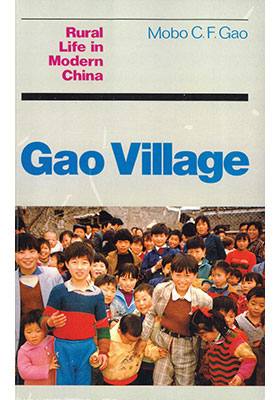Gao Village
Rural Life in Modern China
(高家村:現代中國農村生活)
ISBN : 978-962-209-488-8
January 1999
300 pages, 5.5″ x 8.5″
For sale in Hong Kong SAR, Mainland China, and Taiwan only
- HK$165.00
This book is about Gao Village, in Jiangxi province, where the author was born and brought up, leaving when he was twenty-one to study English at Xiamen University. Since emigrating to Australia in 1990 he has returned every year to Gao Village, where his brother still lives. Mobo Gao’s background helps to explain his interest in writing the book, and why his account is especially valuable. He was both participant and observer before being introduced to Western cultural and theoretical assumptions.
Several accounts of village life in China have been published, but all have been by Western or urban Chinese scholars. Mobo Gao’s account is in every sense one from the inside. Though written as an academic work, it does not eschew personal stories and experiences relevant to the themes addressed. These cover a forty-year period and fall into four distinct themes: the village before and after land reform; the commune system; the dismantling of the communes; and the unfolding impact of the market economy, including increased migration to urban areas, from the late 1980s onwards.
Mobo Gao concludes that although the PRC has continually discriminated against rural residents, who are generically referred to as ‘peasants’, the radical policies implemented during the Cultural Revolution brought about visible improvements in the education and health care. The establishment intellectuals, however, choose to ignore evidence of this kind.
“This remarkable book takes us to the heart of rural China in a way never achieved before. Mobo Gao’s transition from peasant youth to university lecturer abroad has given him a unique perspective. Change in his home village has been far more complex than the China-watching view of modern history would suggest. He convincingly shows that the Cultural Revolution had some positive aspects and that reforms since then have produced mixed results. This is life on the ground where village clans remain strong and the only way out is to become a migrant worker. The book is packed with illuminating detail on the basics of rural life over four decades—valuable material for research and fascinating for anyone to read.” —John Gittings, Far East correspondent, The Guardian, London

